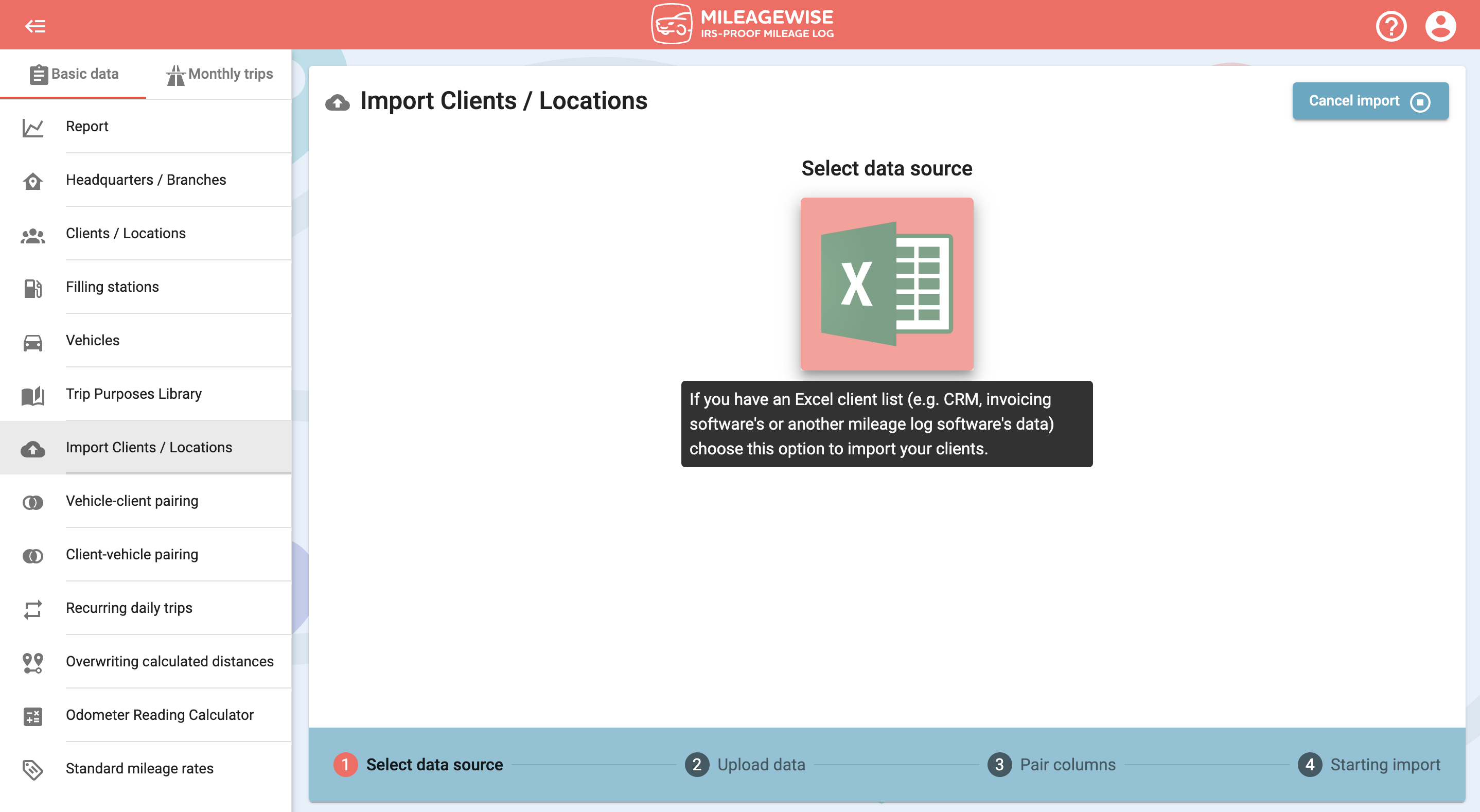
If you use a Google Sheets template to keep a mileage log for taxes, you’re not alone. Here’s the good news: we have a mileage log template in this article if that’s how you prefer to do things, and we also have an automatic mileage tracker app.
We definitely recommend an app if you’re looking to save time, nevertheless we’ll be providing an overview for those who still prefer to track mileage logs on template sheets.

Simply put, a mileage logbook is how some people keep track of the miles they do with their vehicle for business or personal reasons. Generally speaking, there are three main situations when you need to track mileage for income tax purposes:
Often when people talk about a logbook they are referring specifically to a paper-based log, but for the purposes of this web page, we’re going to use the term to refer to any kind of vehicle mileage log.
Additionally, if you are already using or want to use a mileage sheet template like the one we have, you’ll want to make sure that it contains certain things:
We have included all of these in our mileage log sample.
One of the benefits of using our free Google Sheets mileage template is that ours also functions as a mileage calculator, which is based on the IRS’s mileage rates in 2024. What are those rates? Let’s examine:
Additionally, it is also important to note that if you do choose to use our mileage tracker spreadsheet, you will first need to copy the one we have linked here and paste it into your own Google Docs, as this one is publicly available and therefore cannot be altered.
From there, you can edit it as you choose, and when you are finished you can either print the file directly or download it into one of many formats, namely PDF versions, XLXS files (Excel), or even CSV files, all of which are accepted by the IRS.
Since the IRS can request mileage logs retrospectively for up to three years, we have tempates available for the previous years as well.
Once you’ve taken the steps mentioned above, i.e. you have copied our public template to your own Google Docs cloud, then you can edit things as you choose. From there it really becomes a simple matter of entering your trips on an individual basis – just make sure that you are diligent enough to record your personal trips too.
Personal trips are especially important when you consider the fact that the IRS views anything less than 10 percent of your total mileage as personal to be a red flag, and you don’t want to be on the bad side of an IRS audit.
In addition, although the IRS doesn’t require personal trips in your mileage log, it’s strongly recommended that you include them because it will provide clarity for both yourself and the IRS since you need to separate your total business mileage, total personal mileage, and total commuting mileage for the year.
Also, logging your personal trips boosts the proficiency of MileageWise’s built-in IRS auditor function (if you choose to use our software instead), which you need for an IRS-Proof result.
Do you track your mileage manually in Google Sheets or in an Excel file, but find it way too time-consuming or not efficient enough? No need to worry as you can easily import your clients as well as 1000+ trips/month into MileageWise.
Click the picture below for the detailed, step-by-step process:

Also, if you have tracked your trips on Google Timeline, but you’re not able to transform the data from there into the form of a sufficient mileage log, MileageWise is here to help you throughout the entire process. Generate IRS-Proof mileage logs with our Google Maps Timeline Import function.
Maintaining accurate records of travel for business or personal purposes is crucial, and this is where mileage report forms come into play. These forms are essential tools for individuals and businesses to track distances traveled, ensuring precise reimbursement and tax deductions. One popular option is the printable mileage log, a convenient format that can be easily printed and filled out manually. For those who prefer digital records, there are various mileage log apps available, offering the ease of logging trips on the go.
Another useful tool is the free mileage log template, an accessible and cost-effective solution for tracking travel. This template is often available in different formats, including daily mileage log and weekly mileage log template, catering to various tracking needs. Businesses, especially those involving frequent travel like trucking, can benefit from specialized forms like mileage sheets for truck drivers. For a comprehensive record-keeping, combining these sheets with a gas mileage spreadsheet can provide a detailed view of fuel efficiency and expenses.
For individuals or businesses seeking a straightforward solution, a free trip log or travel mileage log sheet can be a great start. These logs typically include fields for date, purpose of the trip, and distance traveled, making them an efficient way to keep track of each journey. The business mileage sheet is tailored specifically for corporate use, ensuring that all business-related travel is accurately documented for reimbursement or tax purposes.
What’s the best mileage log, you might ask. Using either our Google Sheets template or our Excel mileage log template file as a log for your mileage report is certainly a step up from using a cumbersome paper-based log, but above all else, we recommend that you use our mileage tracker app.
We offer tons of features, including the following:
If you’re interested in what advantages MileageWise has that other mileage trackers don’t, check out our mileage tracker app comparison table.
We’d also like to highlight the fact that you can try out our software for free for 14 days, and you needn’t give us your credit card either. The free trial allows you to experience all the benefits our app and its accompanying web dashboard offer – that way you can make an educated decision when it comes to deciding if you want to take on a more long-term plan too.